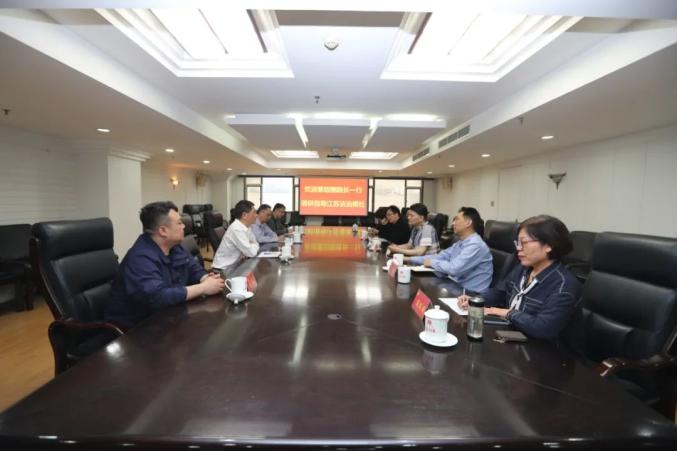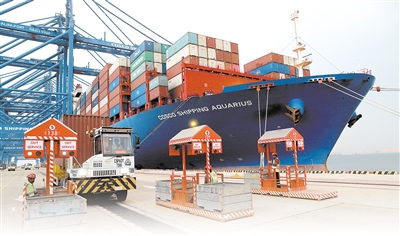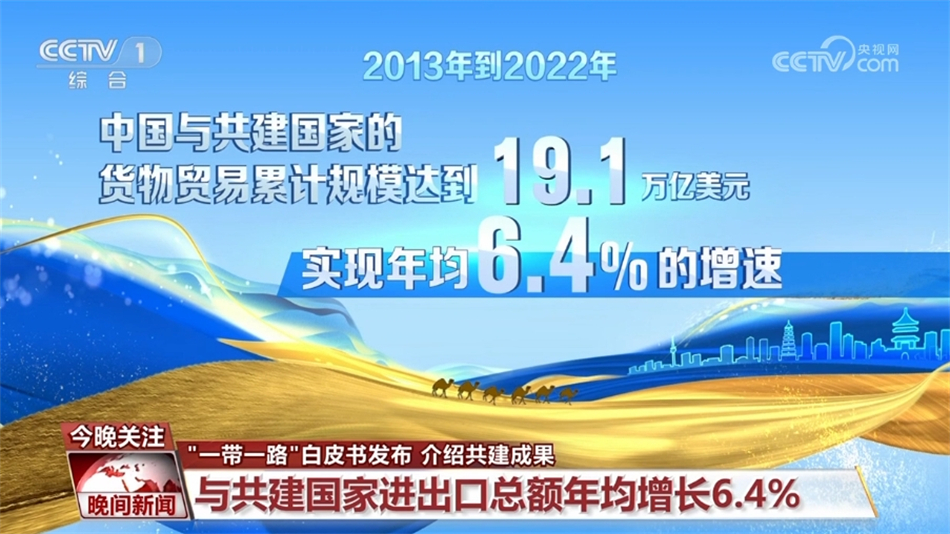Song Zhiping, Chairman Of China Building Materials Group: China Building Materials Focuses On Africa, South America And Southeast Asia To Build Comprehensive Service Providers In The Entire Industrial Chain
Song Zhiping, Chairman Of China Building Materials Group: China Building Materials Focuses On Africa, South America And Southeast Asia To Build Comprehensive Service Providers In The Entire Industrial Chain
On December 7, Song Zhiping, chairman of China Building Materials Group, said at the "Belt and Road" International Innovation Forum hosted by 21st Century Business Herald that Chinese companies have significant advantages in the construction of the "Belt and Road" and when Chinese companies "go global"
On December 7, Song Zhiping, chairman of China Building Materials Group, said at the "Belt and Road" International Innovation Forum hosted by 21st Century Business Herald that Chinese companies have significant advantages in the construction of the "Belt and Road". When Chinese companies "going out", they should pay attention to integrating with their countries and achieving mutual benefit and win-win results, and change from "going out" to "going out".
At present, China's total overseas investment in building materials is nearly 20 billion yuan. In the past ten years, the company has undertaken 312 large-scale cement complete equipment production lines in 75 countries, accounting for 65% of the international new cement production lines, and has maintained the first global cement engineering market share for nine consecutive years; it has generally contracted or designed nearly 60 large-scale glass production lines in countries along the "Belt and Road".
"Going Out" has significant advantages
In his keynote speech, Song Zhiping pointed out that the advantage of Chinese enterprises going global is that they can better undertake the development of industries in countries along the "Belt and Road". "At present, my country's infrastructure has crossed its peak period, and the demand for infrastructure in countries along the Belt and Road Initiative is in a period of rapid growth. China is in a leading position in the fields of building materials production and infrastructure, while related industries in developed countries have been in a recession period of about 20 years, and the competitiveness of enterprises is far less than that of Chinese companies."
According to reports, a large part of the infrastructure, technology, equipment and other aspects in the economic development of countries along the "Belt and Road" are provided by China Building Materials. The advantage of Chinese companies is that their technology is at the mid-to-high-end level and their prices are relatively reasonable. The same equipment can be lower than 20%-30% of the quotations of enterprises in developed countries, and the equipment is suitable for enterprises in the "Belt and Road" countries.
In addition, Song Zhiping believes that the relationship between Chinese enterprises and enterprises in countries along the "Belt and Road" is not a competitive relationship, but a cooperation and mutually beneficial relationship. He gave an example that Cairo is building the world's largest cement project - six cement production lines with a daily output of 6,000 tons. The project is carried out by China Building Materials, which provides large-scale equipment and installation services, and the infrastructure part is fully subcontracted to local Egyptian companies.
Create a comprehensive service provider in the entire industrial chain
When talking about how to better "go global" in the future, Song Zhiping said, "We will do whatever countries along the Belt and Road Initiative need."
He explained that if the country where he is stationed needs equipment and equipment, the company will do EPC and provide good engineering services; if he needs investment, the company will invest in the construction of an industrial park in the local area; if he is not good at management, the company can provide production-contracting operation management. "Take the six cement production lines in Egypt as an example. After construction, the production will be carried out for 10 years, and it will generate considerable benefits every year. We will send 600 people to participate in the management. This is the smart industrial service model we are vigorously promoting."
In particular, many countries along the "Belt and Road" lack technical standards, and China Building Materials can jointly establish laboratories with local governments. The company has set up international laboratories in Ethiopia, Kazakhstan and other countries to help improve local technical R&D levels and establish product standards.
According to data, China Building Materials has 26 national scientific research institutes, 38,000 scientific and technological workers, with more than 8,400 valid patents, including more than 1,900 invention patents and 16 international standards issued. "We must not only provide technical support for China's building materials industry, but also provide support for the technical system of the entire building materials industry on the Belt and Road Initiative." Song Zhiping said.
In addition, companies in some countries are facing sales difficulties, and China Building Materials can set up sales companies locally to help sell products. For example, a cement factory in Tanzania lacks sales channels, so China Building Materials has established a sales network locally to help it sell cement.
Song Zhiping emphasized that the construction of the "Belt and Road" is not just about investing and selling equipment, but companies can provide various assistance to countries along the route. "In this way, China Building Materials can become a comprehensive service provider for the entire industrial chain of the global building materials industry."
Focus on Africa, South America and Southeast Asia
The "Belt and Road" has opened up huge space for the development of Chinese enterprises, and China Building Materials has also ushered in development opportunities. The development goal of "six ones" was proposed, that is, to achieve "six ones" by 2020.
First, build 10 building materials industrial parks; second, build 10 overseas regional inspection and certification centers, build international comprehensive inspection and certification agencies, help local enterprises improve their technical level and formulate corresponding standards; third, build 10 overseas warehouses, place Chinese building materials, and then distribute them to various places; fourth, do 100 EPC projects; fifth, do smart industrial management of 100 factories; sixth, build 100 building materials chain distribution centers.
"If you can make a profit of 20 million to 30 million yuan a year by managing a large cement plant, then managing 100 factories will make a profit of 2 billion to 3 billion yuan." Song Zhiping said.
Song Zhiping believes that under the framework of the "Belt and Road", the seven regions are most worth "going out": Africa, South America, the Middle East, Central and Eastern Europe, Central Asia, South Asia, and Southeast Asia. "We are most optimistic about Southeast Africa, South America and Southeast Asia. China's building materials are entering more smoothly in these regions, and other markets are also actively promoting. The countries on the entire 'Belt and Road' have our market opportunities, but these places are the key layout of China's building materials." He said.





